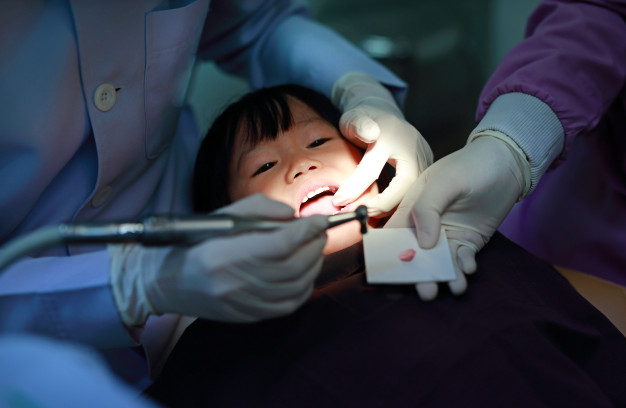At Sapphire Dental Centre, our goal is to help you keep your natural teeth healthy and strong for life. But sometimes, a tooth needs to come out — whether it’s due to severe decay, infection, overcrowding, or to make room for orthodontic treatment.
If your dentist has recommended a tooth extraction, don’t worry — it’s one of the most common dental procedures, and with the right care, it can be straightforward and stress-free. Knowing how to prepare and what to do afterward will help you heal faster and avoid complications.
Here’s what you need to know before, during, and after a tooth extraction.
📋 Before the Extraction: How to Prepare
1️⃣ Talk to Your Dentist
First, have a detailed conversation with your dentist at Sapphire Dental Centre. Ask questions like:
- Why does this tooth need to be removed?
- Are there other treatment options?
- What type of extraction will I have — simple or surgical?
- How long will it take?
- What type of anesthesia will be used?
Understanding the process helps ease anxiety and sets clear expectations.
2️⃣ Share Your Medical History
Always inform your dentist about your medical conditions and medications — including over-the-counter drugs, supplements, and any allergies. Certain conditions like heart disease, diabetes, or immune disorders may require special precautions or antibiotics before your procedure.
3️⃣ Follow Pre-Procedure Instructions
Your dentist may ask you to:
✅ Avoid eating or drinking for a few hours if you’re having sedation.
✅ Arrange a ride home if you’re having IV sedation or general anesthesia.
✅ Wear comfortable, loose-fitting clothes.
✅ Take any prescribed medications exactly as instructed.
Being well-prepared means your procedure will go more smoothly.
During the Extraction: What to Expect
A tooth extraction at Sapphire Dental Centre is done with your comfort in mind. For most extractions, local anesthesia will numb the area completely — so you’ll feel pressure, but no pain.
- Simple Extraction: For a visible tooth, your dentist will loosen it with a special tool and gently remove it with forceps.
- Surgical Extraction: For impacted or broken teeth (like wisdom teeth), a small incision may be made in your gum to remove the tooth safely.
The entire process usually takes less than an hour. Your dentist will place gauze over the socket to help form a blood clot, which is essential for healing.
After the Extraction: Tips for a Smooth Recovery
A smooth recovery is all about following your dentist’s aftercare instructions. Here are key tips to help you heal quickly and avoid complications like dry socket:
1️⃣ Control Bleeding
Bite down gently but firmly on the gauze pad for at least 30–45 minutes after the extraction. If bleeding continues, replace the gauze as directed.
2️⃣ Manage Pain & Swelling
Some discomfort and swelling are normal. Use an ice pack on your cheek for 10–20 minutes at a time during the first 24 hours. Take prescribed or recommended pain medication as directed — don’t skip doses.
3️⃣ Protect the Blood Clot
A healthy clot is vital for healing. For the first 24 hours:
- Don’t rinse your mouth vigorously.
- Avoid spitting forcefully.
- Do not drink through a straw.
- Skip smoking or vaping — these can dislodge the clot and cause a painful condition called dry socket.
4️⃣ Eat Soft Foods
Stick to soft, cool foods like yogurt, pudding, smoothies, scrambled eggs, or mashed potatoes for the first couple of days. Avoid crunchy, hot, or spicy foods that could irritate the area.
5️⃣ Keep It Clean — Gently
Continue brushing your other teeth, but avoid the extraction site for the first day. After 24 hours, gently rinse with warm salt water (½ teaspoon of salt in a cup of warm water) several times a day to keep the area clean and help reduce swelling.
6️⃣ Rest & Take It Easy
Plan to rest for the first day and limit physical activities. Keep your head elevated with pillows when lying down to help reduce bleeding and swelling.
When to Call Your Dentist
Healing usually takes about 1–2 weeks, with discomfort gradually improving each day. However, contact Sapphire Dental Centre right away if you experience:
- Heavy or prolonged bleeding
- Severe pain that doesn’t improve with medication
- Signs of infection (fever, chills, foul taste, or pus)
- Difficulty breathing or swallowing
Your health and comfort are always our top priorities.
Final Thoughts: Your Smile Is in Good Hands
Having a tooth extracted may sound intimidating, but with the caring team at Sapphire Dental Centre, you’re in expert hands from start to finish. We’ll guide you every step of the way, answer your questions, and make sure you’re as comfortable as possible.
If you’ve been told you need a tooth extraction — or you’re experiencing pain and think you might — don’t wait. Early treatment means fewer complications and faster healing.


